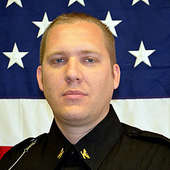Opinion
The ‘textbook’ answer, and where it gets you
Saturday, January 13, 2018
“This isn’t my place, so I don’t know what’s in here. Well yes … I guess I do live here, but if you find anything illegal, I’m not sure where it came from. Unless it’s money, that would be mine. But if it’s drugs, someone else left it there.”
Sometimes we get conflicting and confusing answers from people when serving search warrants or attempting to question them on calls. We hear a lot of statements that do not make sense and most of the time, it only makes us more certain that something is just a little off.
“I only had a couple of beers.”
I have often wondered why it is not three or one? Why does two seem to be the default amount of beers drank when the real answer is: “I’m drunk and probably can’t walk straight.”
I have found over the years that we hear a lot of the same answers when we ask questions; because of this, I have begun calling these responses “textbook answers.”
Have you been taking any drugs? “No, I quit.” When did you quit? “Yesterday.”
Do you have anything illegal in your pockets? “Not that I know of.” What’s in this little bag then? “I have no idea how that got there.”
Have you seen Mr. Smith? We were told he is staying here and he has a warrant. “No, I haven’t seen him in weeks.” Okay, our deputy just caught him running out your back door, but thanks for the help. “Oh man, I didn’t know he was even here.”
Hello, we got a call about your house … “man it’s only pot and some pills, we don’t have anything else in the house.” Well, I was referring to the trash scattered in your yard, but let’s take a look at the drugs you’re talking about!
Most criminals instinctively deny all wrongdoing and say they have no knowledge of any crime, even if they are sitting in the crime scene. The idea behind this is to make us prove it, and if we cannot then they do not get caught. This idea however does not work when the answer given is a textbook answer and it goes against the common-sense doctrine.
We have found drugs hidden in people’s socks, pockets, ball cap, shoes and even their underwear, only to have them tell us they do not know how it got there. How often have you found a bag with crystal rocks the size of marbles in your sock and did not know how it got there? Maybe someone else accidentally left it in your sock?
“These aren’t my shorts” is not a very good answer for not knowing how drugs got in your pocket. Unless you casually change into strangers’ clothes on a regular basis, we will assume they are yours including what is in the pockets.
Nobody wants to go to jail or prison, so they do the only thing they can think of at the time, which is deny. It even sounds like a reasonable explanation to them at the time, but to us, it is the same old answer. Not long ago we were dealing with a person because we had knowledge they were involved with drugs and when we found the drugs, they said, “those are mine and I don’t know why I’m still messing with that stuff.” We did not know how to respond for a moment because no one ever says that. But it was good to see someone that was trying to take responsibility for what they did, admit it and move on. They did not blame anyone else and they did not give us a textbook answer. There are people out there who want to do the right thing even if they are struggling with how to do it. Those who are willing to take matters into their own hands and confront their problems will be the ones who one day leave it all in the past and move on, while those who refuse continue to give the textbook answers to us every time we deal with them.

